-
 Bitcoin
Bitcoin $106,782.3966
-0.72% -
 Ethereum
Ethereum $2,406.7764
-1.16% -
 Tether USDt
Tether USDt $1.0005
0.02% -
 XRP
XRP $2.0918
-1.53% -
 BNB
BNB $644.5785
-0.17% -
 Solana
Solana $141.0925
-0.69% -
 USDC
USDC $1.0000
0.02% -
 TRON
TRON $0.2721
0.18% -
 Dogecoin
Dogecoin $0.1585
-1.26% -
 Cardano
Cardano $0.5497
-1.14% -
 Hyperliquid
Hyperliquid $35.8493
-1.58% -
 Bitcoin Cash
Bitcoin Cash $502.3089
2.20% -
 Sui
Sui $2.7092
3.87% -
 Chainlink
Chainlink $12.8551
-1.85% -
 UNUS SED LEO
UNUS SED LEO $9.0548
0.53% -
 Stellar
Stellar $0.2344
-0.85% -
 Avalanche
Avalanche $17.2676
-0.23% -
 Toncoin
Toncoin $2.8282
0.56% -
 Shiba Inu
Shiba Inu $0.0...01113
-1.14% -
 Litecoin
Litecoin $83.9593
-0.93% -
 Hedera
Hedera $0.1447
0.82% -
 Monero
Monero $306.9022
-2.07% -
 Bitget Token
Bitget Token $4.6358
3.42% -
 Dai
Dai $0.9999
0.01% -
 Ethena USDe
Ethena USDe $1.0001
0.02% -
 Polkadot
Polkadot $3.3211
0.06% -
 Uniswap
Uniswap $6.8775
0.75% -
 Pi
Pi $0.5664
-0.27% -
 Aave
Aave $256.0055
1.28% -
 Pepe
Pepe $0.0...09013
-3.24%
How to set transaction reminders in Bybit Wallet?
Bybit Wallet lacks built-in transaction reminders, but users can use third-party tools like blockchain explorers and portfolio apps for notifications, ensuring to prioritize security.
Mar 31, 2025 at 02:21 am
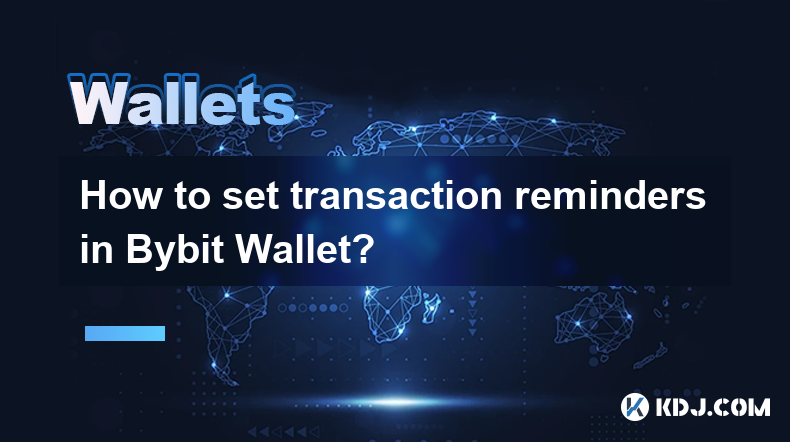
Understanding Bybit Wallet and Transaction Reminders
Bybit Wallet, a crucial part of the Bybit ecosystem, allows users to store and manage various cryptocurrencies. Security is paramount, and transaction reminders enhance this security by providing timely notifications about your on-chain activities. This is particularly helpful for preventing accidental losses or missed opportunities. Currently, Bybit Wallet itself doesn't offer a built-in transaction reminder system in the traditional sense (like email or SMS alerts for every transaction). However, there are alternative methods you can employ to achieve similar functionality.
Leveraging Third-Party Tools and Platforms
Since Bybit Wallet lacks native transaction reminders, users must rely on external services. These services typically monitor blockchain activity for specific addresses. Several options exist, offering varying features and levels of customization. Remember to carefully research and select a reputable service with strong security measures to protect your sensitive information. Compromised third-party tools could expose your wallet address and potentially lead to theft.
Blockchain Explorers: Websites like Block Explorer (specific to the blockchain you're using, e.g., etherscan.io for Ethereum) allow you to track transactions associated with your Bybit Wallet address. You can manually check for new transactions periodically. This isn't a true "reminder," but it offers visibility.
Cryptocurrency Portfolio Tracking Apps: Many apps aggregate data from various exchanges and wallets, including Bybit. Some offer customizable alerts based on transaction values, types, or specific assets. This provides a centralized view and notification system for all your crypto holdings.
Email or SMS Alerts (Indirect Method): While not a direct feature of Bybit Wallet, you can set up email or SMS alerts through your exchange or third-party tools. These alerts might notify you of significant changes in your account balance, which indirectly signals transactions. However, this method is less precise and may not capture all transaction details.
Setting Up Transaction Monitoring with Third-Party Apps (Example)
Let's consider using a hypothetical cryptocurrency portfolio tracking app called "CryptoTrack." The process might look like this:
Download and Install: Download and install the CryptoTrack app on your preferred device.
Add Bybit Wallet: Connect your Bybit Wallet address to the CryptoTrack app. This usually involves providing your public address; never share your private keys.
Configure Alerts: Navigate to the app's settings or notification section. Configure alerts based on your preferences. This could include receiving notifications for transactions exceeding a certain value, for specific cryptocurrencies, or for any transaction regardless of amount.
Test and Verify: After configuring the alerts, make a small test transaction to ensure the notifications are working correctly.
Understanding the Limitations and Security Considerations
Remember, relying on third-party apps introduces a degree of risk. Always verify the legitimacy and security of any app before connecting it to your Bybit Wallet. Never share your private keys with any third-party service. Only provide your public address, which is publicly viewable on the blockchain. Even with these precautions, there’s always a small chance of delays or missed notifications due to network issues or app malfunctions.
Regularly review your transaction history directly on Bybit Wallet and the blockchain explorer to ensure accuracy and identify any discrepancies. This helps maintain a high level of control and security over your funds. Using multiple methods of monitoring your transactions can provide an additional layer of security.
Exploring Alternative Strategies
If you are particularly concerned about missed transactions, consider using a hardware wallet alongside your Bybit Wallet. Hardware wallets offer a higher level of security and can be integrated with some portfolio tracking apps for notifications. This approach combines the convenience of Bybit Wallet with the enhanced security of a hardware wallet.
Consider diversifying your cryptocurrency holdings across multiple wallets and exchanges to mitigate the risk associated with a single point of failure. This approach reduces the potential impact of any security breach or service interruption. Regularly reviewing your security practices and staying informed about potential threats is crucial for protecting your crypto assets.
Frequently Asked Questions
Q: Does Bybit Wallet have a built-in transaction reminder system?
A: No, Bybit Wallet currently doesn't offer a built-in system for transaction reminders.
Q: What are the risks of using third-party apps for transaction monitoring?
A: The primary risk is the potential compromise of your data if the third-party app is insecure. Always verify the app's reputation and security measures.
Q: How can I ensure the security of my Bybit Wallet when using third-party tools?
A: Only provide your public address, never your private keys. Regularly review your transaction history on Bybit Wallet and a blockchain explorer to verify accuracy.
Q: What are some alternative methods to monitor transactions besides third-party apps?
A: You can manually check transaction history on blockchain explorers or set up email/SMS alerts from exchanges (indirect method). A hardware wallet can offer additional security.
Q: What if I miss a transaction notification from a third-party app?
A: Regularly check your transaction history directly on Bybit Wallet and the relevant blockchain explorer to ensure you haven't missed any activity.
Disclaimer:info@kdj.com
The information provided is not trading advice. kdj.com does not assume any responsibility for any investments made based on the information provided in this article. Cryptocurrencies are highly volatile and it is highly recommended that you invest with caution after thorough research!
If you believe that the content used on this website infringes your copyright, please contact us immediately (info@kdj.com) and we will delete it promptly.
- Smart Investors Navigate the AI Token Frenzy: Bitcoin Switch and Beyond
- 2025-06-28 12:30:12
- Crypto in 2025: How Web3 AI is Poised to Dominate
- 2025-06-28 12:30:12
- Solana's Support Level Holds as MACD Crossover Hints at Potential Bullish Reversal
- 2025-06-28 12:50:12
- Altcoin Growth Hacking: Is MAGACOIN FINANCE Your Early Entry Ticket?
- 2025-06-28 13:10:12
- Crypto, Invest, July: What's Hot in the Digital Coin World?
- 2025-06-28 13:30:12
- Anchorage, Stablecoins, and Delistings: A New York Minute on Crypto Drama
- 2025-06-28 13:30:12
Related knowledge

How to stake cryptocurrencies on Coinbase? Benefits and risks
Jun 27,2025 at 06:36pm
Understanding Cryptocurrency Staking on CoinbaseStaking cryptocurrencies involves locking up digital assets to support the operations of a blockchain network, typically in return for rewards. Coinbase, one of the most popular cryptocurrency exchanges globally, offers staking services for several proof-of-stake (PoS) coins. Users can stake their holdings...

How to contact Coinbase customer service? Support channels and response times
Jun 28,2025 at 01:29pm
Contacting Coinbase Customer Service: Support Channels and Response TimesIf you're a user of Coinbase, reaching their customer service team may become necessary for various reasons, such as account verification issues, transaction disputes, or technical difficulties. Understanding the different support channels available and what to expect in terms of r...
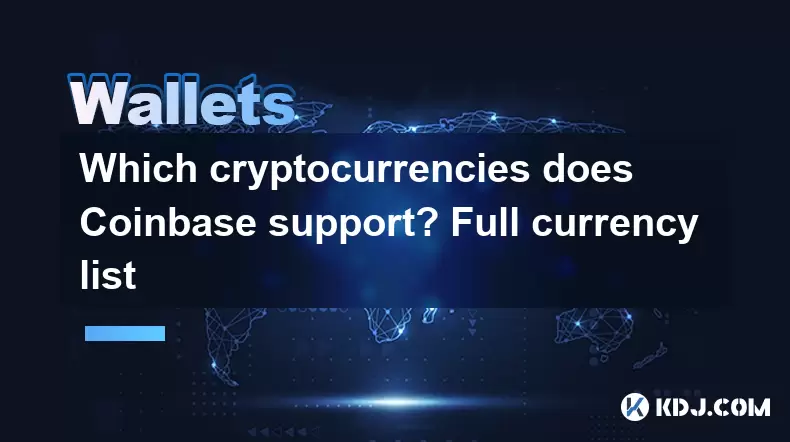
Which cryptocurrencies does Coinbase support? Full currency list
Jun 28,2025 at 08:36am
Overview of Cryptocurrencies Supported by CoinbaseCoinbase is one of the most popular and trusted cryptocurrency exchanges globally. It provides users with a platform to buy, sell, trade, and store various digital assets. As of the latest updates, Coinbase supports over 200 cryptocurrencies, including major ones like Bitcoin (BTC), Ethereum (ETH), and L...
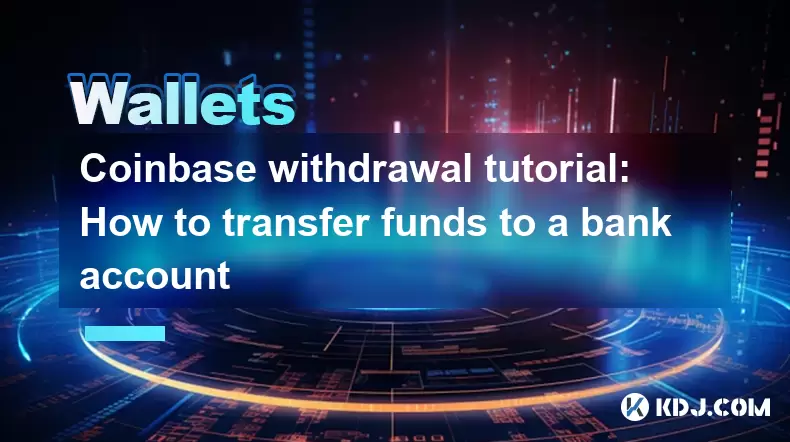
Coinbase withdrawal tutorial: How to transfer funds to a bank account
Jun 28,2025 at 02:35am
Understanding Coinbase WithdrawalsCoinbase is one of the most widely used cryptocurrency platforms, allowing users to buy, sell, and store digital assets. Once you've successfully traded or held your crypto on Coinbase, the next logical step may be to withdraw funds to a bank account. This process involves converting your cryptocurrency into fiat curren...
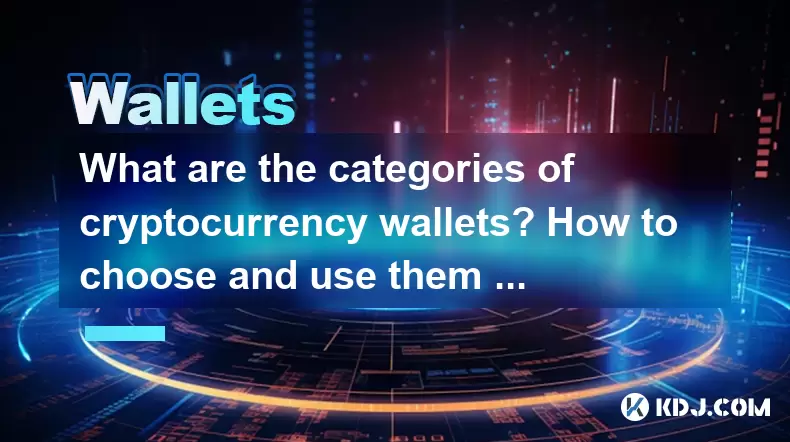
What are the categories of cryptocurrency wallets? How to choose and use them safely?
Jun 21,2025 at 10:42pm
Understanding Cryptocurrency WalletsCryptocurrency wallets are essential tools for anyone involved in the digital asset ecosystem. They allow users to store, send, and receive cryptocurrencies securely. Unlike traditional wallets that hold physical money, crypto wallets manage cryptographic keys—private and public—which interact with blockchain networks...
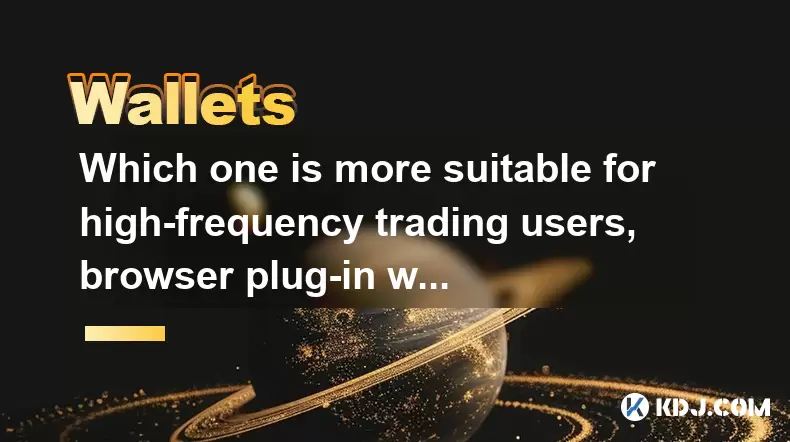
Which one is more suitable for high-frequency trading users, browser plug-in wallets or independent application wallets?
Jun 23,2025 at 08:22am
Understanding the Role of Wallets in High-Frequency TradingFor high-frequency trading (HFT) users in the cryptocurrency market, wallet selection is critical due to the need for speed, security, and seamless integration with trading platforms. HFT involves executing a large number of trades within seconds or even milliseconds, which demands a wallet that...

How to stake cryptocurrencies on Coinbase? Benefits and risks
Jun 27,2025 at 06:36pm
Understanding Cryptocurrency Staking on CoinbaseStaking cryptocurrencies involves locking up digital assets to support the operations of a blockchain network, typically in return for rewards. Coinbase, one of the most popular cryptocurrency exchanges globally, offers staking services for several proof-of-stake (PoS) coins. Users can stake their holdings...

How to contact Coinbase customer service? Support channels and response times
Jun 28,2025 at 01:29pm
Contacting Coinbase Customer Service: Support Channels and Response TimesIf you're a user of Coinbase, reaching their customer service team may become necessary for various reasons, such as account verification issues, transaction disputes, or technical difficulties. Understanding the different support channels available and what to expect in terms of r...

Which cryptocurrencies does Coinbase support? Full currency list
Jun 28,2025 at 08:36am
Overview of Cryptocurrencies Supported by CoinbaseCoinbase is one of the most popular and trusted cryptocurrency exchanges globally. It provides users with a platform to buy, sell, trade, and store various digital assets. As of the latest updates, Coinbase supports over 200 cryptocurrencies, including major ones like Bitcoin (BTC), Ethereum (ETH), and L...

Coinbase withdrawal tutorial: How to transfer funds to a bank account
Jun 28,2025 at 02:35am
Understanding Coinbase WithdrawalsCoinbase is one of the most widely used cryptocurrency platforms, allowing users to buy, sell, and store digital assets. Once you've successfully traded or held your crypto on Coinbase, the next logical step may be to withdraw funds to a bank account. This process involves converting your cryptocurrency into fiat curren...

What are the categories of cryptocurrency wallets? How to choose and use them safely?
Jun 21,2025 at 10:42pm
Understanding Cryptocurrency WalletsCryptocurrency wallets are essential tools for anyone involved in the digital asset ecosystem. They allow users to store, send, and receive cryptocurrencies securely. Unlike traditional wallets that hold physical money, crypto wallets manage cryptographic keys—private and public—which interact with blockchain networks...

Which one is more suitable for high-frequency trading users, browser plug-in wallets or independent application wallets?
Jun 23,2025 at 08:22am
Understanding the Role of Wallets in High-Frequency TradingFor high-frequency trading (HFT) users in the cryptocurrency market, wallet selection is critical due to the need for speed, security, and seamless integration with trading platforms. HFT involves executing a large number of trades within seconds or even milliseconds, which demands a wallet that...
See all articles























































































